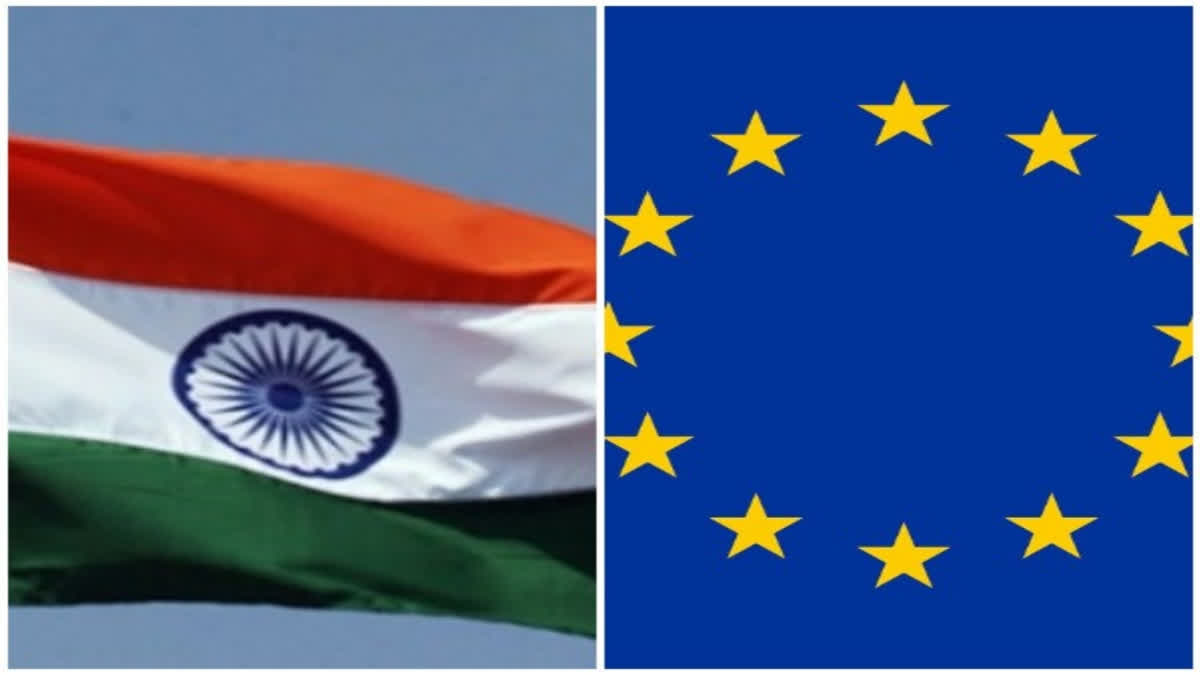New Delhi:Under the EU's global Gateway initiative, India and the EU are mulling ways to boost smart, green and secure connectivity investments in the North Eastern States of India. However, concerning that, the EU-India Global Gateway conference was inaugurated in Shillong on Wednesday.
Organised by the Delegation of the European Union to India and Bhutan, the Ministry of External Affairs, the Government of India and Asian Confluence, the two-day conference brought together public and private stakeholders to enhance connectivity policy dialogue and investments between the EU, India’s Eastern and North-Eastern States (Arunachal Pradesh, Assam, Manipur, Meghalaya, Mizoram, Nagaland, Tripura, and Sikkim) and its immediate neighbours (Bangladesh, Bhutan, and Nepal).
It aimed at enhancing dialogue and identifying priority connectivity needs in the region and was inaugurated by Conrad Kongkal Sangma, Chief Minister of Meghalaya and Dr Rajkumar Ranjan Singh, Minister of State, Ministry of External Affairs and Education, in the presence of Koen Doens, Director General, Directorate General for International Partnerships, European Commission, Ugo Astuto, Ambassador of the European Union to India and Bhutan, and Santosh Jha, Ambassador of India to the European Union. Senior government officials of the North Eastern States, Nepal, Bhutan and Bangladesh and stakeholders from the private sector will be participating in the conference.
It is organised as part of the EU’s Global Gateway. This initiative will help to map out the existing connectivity projects in North-East across Global Gateway priorities – digital, climate & energy and transport in identifying gaps and opportunities for future EU-India cooperation. The recently held EU and India Trade and Technology Council also recognise these as key deliverables.
Chief Minister of Meghalaya Conrad Kongkal Sangma emphasised that the rich cultural diversity, abundant natural resources and vast borders of the North East region present vast opportunities that the EU and India can leverage through their partnership. Dr Rajkumar Ranjan Singh, Minister of State, Ministry of External Affairs, spoke about ‘connectivity’ and how it plays a crucial role in not only attracting investments, promoting trade, making business operations easier but also helps in generating opportunities for MSMEs and improving the skillset of the masses.
Speaking at the event, EU Ambassador to India Ugo Astuto said, “Through Global Gateway the EU and India can work together for sustainable and resilient infrastructure. This is also true for the North East, which has much to gain from enhanced connectivity with the rest of India and the region.”
The insights generated through the discussions will complement the findings of the mapping study to identify the priority investment needs in the region as per five Global Gateway sectors serving as a stepping-stone towards drafting an “EU-India North East Investment Pipeline Roadmap 2025”.
The initial mapping has identified 120 projects across all five sectors (Digital, Climate & Energy, Transport, Education & Research, and Health) of the Global Gateway led by Team Europe and Indian stakeholders, international organisations, and partner countries. Notably, to promote jointly a transparent, viable, inclusive, sustainable, comprehensive, and rules-based approach to connectivity, the EU and India signed a connectivity partnership during the leader's meeting in May 2021.
The Global Gateway is the EU’s contribution to narrowing the global investment gap worldwide. It is in line with the commitment of the G7 leaders from June 2021 to launch a values-driven, high-standard, and transparent infrastructure partnership to meet global infrastructure development needs. The Global Gateway is also fully aligned with the UN’s Agenda 2030 and its Sustainable Development Goals, as well as the Paris Agreement.
